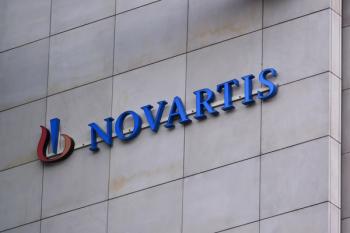
Dual Trial Strategy: Company-Sponsored and Investigator-Initiated
Artiva Biotherapeutics' CEO Fred Aslan, MD, explains the strategic advantages of pursuing both a company-sponsored trial and an investigator-initiated trial simultaneously.
In this Pharmaceutical Executive video interview, Fred Aslan, MD, CEO of Artiva Biotherapeutics, discusses the company’s current trials for autoimmune indications in the US. The first is a company-sponsored trial focusing on lupus, while the second is an investigator-initiated trial exploring four conditions: lupus, rheumatoid arthritis, pemphigus vulgaris, and vasculitis. This second trial is uniquely being conducted in a community setting to assess the practicality of outpatient treatment.
Pharmaceutical Executive: What are the strategic advantages of pursuing both a company-sponsored trial and an investigator-initiated trial simultaneously, and how do they complement each other and differentiate AlloNK from autologous cell therapies or other existing treatments for these conditions?
Fred Aslan: In a company sponsored trial, you generally work with a CRO and open multiple different sites, sometimes in different countries. One of the advantages is that the data is often considered more robust because it’s not dependent on what is happening on one site. You can look across a variety of different sites with different patient populations in different countries. It's a powerful tool to give you more confidence on the signal that you're generating.
An investigator-initiated trial is very compelling because it can be a very efficient way to work with a site where there is already an investigator that's interested in generating data for you. One of the specific advantages of working in this investigator-initiated trial goes back to the notion that this is a community rheumatologist testing our drug. Today, a patient receiving auto CAR-T cannot get this done in a community setting and instead must go to a FACT-accredited center. There are approximately just 100 of these centers around the country. We have 1000s of different outpatient clinics where one can get treated today for an autoimmune disease.
Auto CAR-T needs to be done at these tertiary care centers because it is a more complicated procedure. They must perform apheresis on the patient and send them home while they manufacture the product. The patient must come back to be hospitalized. After they're treated and leave the hospital, they must hang around the center for at least 30 days in case they need to be rushed back.
A site like the one we're working with for this investigator-initiated trial is a community site. They would not have the capability to run an auto CAR-T trial. This specific trial gives us an opportunity to demonstrate that AlloNK can be used in an outpatient setting (assuming the trial goes as we expect). The physician at this site works independently as a strict rheumatology community practice and can treat his patients in his infusion chairs, send them home after they receive the therapy, and manage their outpatient therapy.
Part of our differentiation compared with autologous CAR-T cell is that we believe that our therapy can become accessible to a much larger population of autoimmune patients. The only way to get to that population is really to make this therapy available in community sites. The only way for community sites to be administering this drug is if it's something that they can handle as a site. Having a trial in a community site gives us a lot of insights as to the feasibility of getting this done with our product.
Newsletter
Lead with insight with the Pharmaceutical Executive newsletter, featuring strategic analysis, leadership trends, and market intelligence for biopharma decision-makers.




